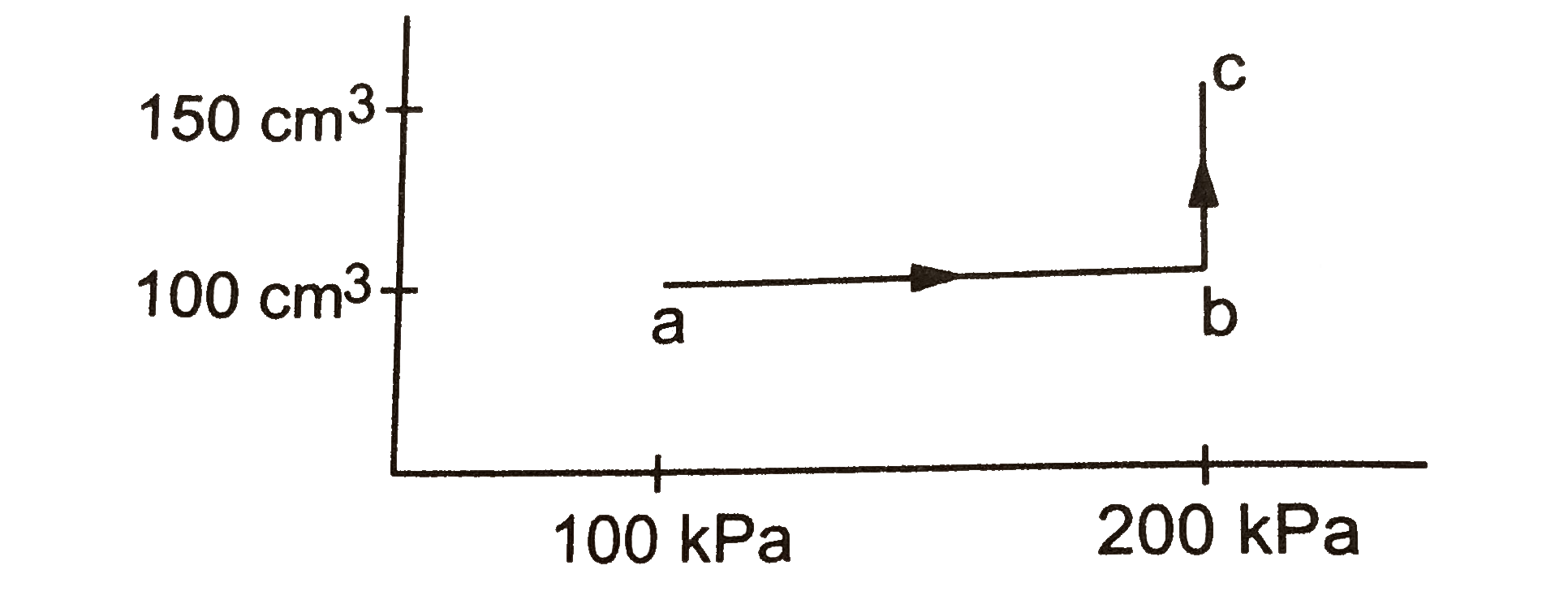N2 gas is heated from 300 kg temperature to 600 k through an isobaric process. Then find the change in the entropy of the gas (n = 1 mole )
10 J/k
20 J/k
30 J/k
40 J/k
The correct Answer is:B
To solve the problem of finding the change in entropy of nitrogen gas (N₂) heated from 300 K to 600 K through an isobaric process, we can follow these steps:
1. Understand the Process:
We are dealing with an isobaric process, which means the pressure remains constant while the temperature changes.
2. Formula for Change in Entropy:
The change in entropy ΔS for an ideal gas during an isobaric process can be expressed as:
ΔS=nCpln(T2T1)
where n is the number of moles, Cp is the molar heat capacity at constant pressure, T1 is the initial temperature, and T2 is the final temperature.
3. Identify Given Values:
- n=1 mole (as given)
- T1=300K
- T2=600K
4. Find Cp for Nitrogen Gas:
Nitrogen (N₂) is a diatomic gas. For diatomic gases, we can use the relation:
Cp=72R
where R is the universal gas constant, approximately 8.314J/(mol K).
5. Calculate Cp:
Cp=72×8.314≈29.19J/(mol K)
6. Substitute Values into the Entropy Change Formula:
ΔS=1×29.19ln(600300)
7. Calculate the Natural Logarithm:
ln(600300)=ln(2)≈0.693
8. Final Calculation of Change in Entropy:
ΔS=29.19×0.693≈20.24J/K
9. Conclusion:
The change in entropy of the nitrogen gas when heated from 300 K to 600 K through an isobaric process is approximately 20.24J/K.
We are dealing with an isobaric process, which means the pressure remains constant while the temperature changes.
The change in entropy ΔS for an ideal gas during an isobaric process can be expressed as:
ΔS=nCpln(T2T1)
where n is the number of moles, Cp is the molar heat capacity at constant pressure, T1 is the initial temperature, and T2 is the final temperature.
- n=1 mole (as given)
- T1=300K
- T2=600K
Nitrogen (N₂) is a diatomic gas. For diatomic gases, we can use the relation:
Cp=72R
where R is the universal gas constant, approximately 8.314J/(mol K).
Cp=72×8.314≈29.19J/(mol K)
ΔS=1×29.19ln(600300)
ln(600300)=ln(2)≈0.693
ΔS=29.19×0.693≈20.24J/K
The change in entropy of the nitrogen gas when heated from 300 K to 600 K through an isobaric process is approximately 20.24J/K.
Similar Questions
Knowledge Check
The temperature of n moles of an ideal gas is increased from T to 4T through a process for which pressure P=aT−1 where a is a constant .Then the work done by the gas is
Aa. nRTBb. 4nRTCc. 2nRTDd. 6nRT
When two moles of an ideal gas (Cp.m.=52R) heated form 300K to 600K at constant pressure, the change in entropy of gas (ΔS) is:
View SolutionIn a closed vessel, a gas is heated from 300 K to 600 K the kinetic energy becomes/remain
View Solution4 moles of an ideal monoatomic gas is heated isobarically so that its absolute temperature increases 2 times. Then the entropy increment of the gas in this process is
View SolutionTemperature of 1 mole of an ideal gas is increased from 300K to 310K under isochoric process. Heat supplied to the gas in this process is Q=25R, where R=universal gas constant. What amount of work has to be done by the gas if temperature of the gas decreases from 310K to 300K adiabatically?
View SolutionAn ideal gas (γ=1.67) is taken through the process abc shown in figure . The temperature at the point a is 300k. Calculate (a) the temperature at b and c, (b) the work done in the process, ( c) the amount of heat supplied in the path ab and in the path bc and (d) the change in the internal energy of the gas in the process.

View SolutionOne mole of an ideal monoatomic gas is taken at a temperature of 300K. Its volume is doubled keeping its pressure constant. Find the change in internal energy.
View SolutionA diatomic gas done 80J work when expanded isobarically. Find the heat given to the gas during this process?
View Solution
